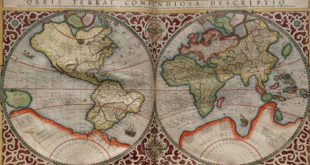Archaeologists believe they have found the lost Philistine city of Ziklag, where young David lived when he fled from King Saul. They said they had discovered the remains of the 3,000-year-old settlement near the modern town of Kiryat Gat in southern Israel.
An aerial view of the archaeological site of Ziklag, Israel. Image credit: Emil Aljem, Israel Antiquities Authority.
“Ziklag is mentioned multiple times in the Bible in relation to King David (in 1 Samuel and 2 Samuel),” said Hebrew University’s Professor Yosef Garfinkel and his colleagues from the Israel Antiquities Authority and Macquarie University.
“According to the Biblical narrative, Achish, King of Gat, allowed David to find refuge in Ziklag while fleeing King Saul and from there David also departed to be anointed King in Hebron.”
“Ziklag was also the scene of a dramatic event, in which the Amalekites, desert nomads, raided and burned the town taking women and children captive.”
“The name Ziklag is unusual in the lexicon of names in the Land of Israel, since it is not local Canaanite-Semitic. It is a Philistine name, given to the town by an alien population of immigrants from the Aegean,” the archaeologists explained.
“Twelve different suggestions to identify Ziklag have been put forward, such as Tel Halif near Kibbutz Lahav, Tel Sera in the Western Negev, Tel Sheva, and others. However, none of these sites produced continuous settlement which included both a Philistine settlement and a settlement from the era of King David.”
Excavations at the site of Khirbet a-Ra‘i, located between Kiryat Gat and Lachish, unearthed massive stone structures and a wide variety of artifacts from the 12-11th centuries BCE which indicate the presence of the Philistine city.
“Additional finds are foundation deposits, including bowls and an oil lamp — offerings laid beneath the floors of the buildings out of a belief that these would bring good fortune in the construction. Stone and metal tools were also found,” the researchers said.
“Similar finds were discovered in the past in excavations in Ashdod, Ashkelon, Ekron and Gath — the cities of the Lords of the Philistines.”
The team also unearthed the remains of a rural settlement from the time of King David, from the early 10th century BCE.
“This settlement came to an end in an intense fire that destroyed the buildings,” Professor Garfinkel and colleagues said.
“Nearly one hundred complete pottery vessels were found in the various rooms. They are identical to those found in the contemporary fortified Judaean city of Khirbet Qeiyafa — identified as the Biblical city of Sha‘arayim — in the Judaean foothills.”
“The great range of complete vessels is testimony to the interesting everyday life during the reign of King David.”
“Large quantities of storage jars were found during the excavation — medium and large — which were used for storing oil and wine.
“Jugs and bowls were also found decorated in the style known as ‘red slipped and hand burnished’ — typical to the period of King David.”
 #Bizwhiznetwork.com Innovation ΛI |Technology News
#Bizwhiznetwork.com Innovation ΛI |Technology News




